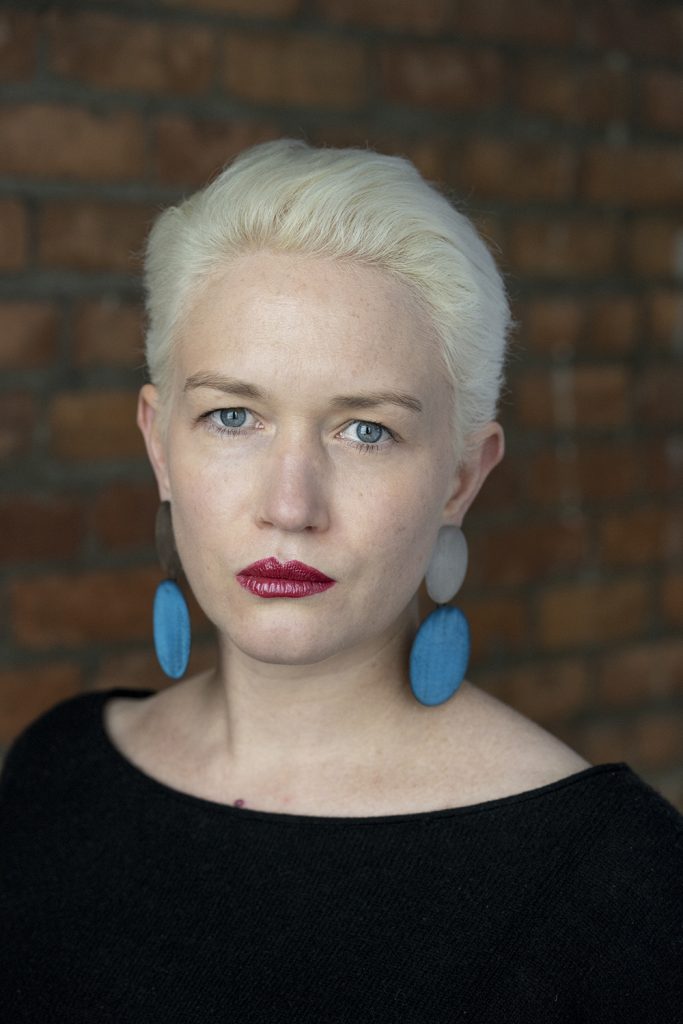Hackman will discuss ‘Emotional Labor’ at Nell Peel Wolfe Lecture
Rose Hackman wants to shine a light on the undervalued and ignored.
Hackman, a longtime journalist, hopes to accomplish that goal and help women “forge pathways for radical revolution, justice, and change” with her new book
“Emotional Labor: The Invisible Work Shaping Our Lives and How to Claim Our Power.”

Hackman will discuss her book as part of the annual Nell Peel Wolfe Lecture at 6 p.m. Thursday, April 13, in the Nissan Auditorium. The Gordy Honors College will be the host for the event.
“The incredible thing about emotional labor is that even as it is a form of work that is devalued, rendered invisible and feminized, sometimes racialized, it is also a form of work that is incredibly valuable – essential even to our families, communities and the economy at large,” Hackman said. “The most empowering message I hope people walk away with after reading this book is that far from being a form of work that signals inferiority or submission, it is one of the most important forms of work out there.”
Dr. Kim Whitehead, associate vice president for Academic Affairs at Mississippi University for Women and director of the Ina E. Gordy Honors College, said The W is “lucky” to get Hackman to come to Columbus to talk about her acclaimed book.
“The Honors College is honored to host the annual Nell Peel Wolfe Lecture and to bring scholars and writers to campus to discuss timely and important topics,” Whitehead said. “Drawing on hundreds of interviews and years of research, Hackman demonstrates what social scientists like Arlie Hochschild have been asserting since the 1980s — that race, gender and class very often unequally determine the burden of emotional labor borne in our workplaces. But going beyond simple analysis, she explores ways to resist expectations and reorient our value systems.”
Hackman said it took her nearly eight years to write the book. She said her research into emotional labor as an overlooked yet essential form of work began in 2015 when she worked as a features writer with “The Guardian” based in New York City. Hackman said her editor asked her to investigate the topic as a “next feminist frontier”. The article she wrote in the fall of that year was widely circulated and helped her earn a book deal with Flatiron Books, an imprint of Macmillan. She said “Emotional Labor” is a combination of research from dozens of academic disciplines and her original research.
Hackman said she used a multipronged approach to identify women she wanted to interview and who were ideal subjects to highlight the invisible nature of emotional labor. She said she did a couple of call outs for experiences and that she published one in “The Guardian” in 2017 that garnered hundreds of responses. Hackman also did one through her personal networks and was overwhelmed by the response and interest in both efforts.
“During those years, I divided my time between Michigan, Mississippi and New York – so a lot of the people I spoke to were concentrated in those states,” Hackman said. “Finally, because of the topic, I also sought out specific voices at specific times, like health care industry workers at the beginning of the COVID-19 epidemic.”
Hackman is engaged to be married to Andrew Colom, who grew up in Columbus, this fall, and she is excited to talk about her book in a town she holds very close to her heart.
“My book and general work over the last decade as a journalist have touched on many of the hidden roots of persistent gender, but also racial inequalities, which I believe to be in line with The W’s support of critical thinking and responsible citizenship,” Hackman said. “I am so grateful to have an opportunity to talk about my work and research in such an esteemed context.”